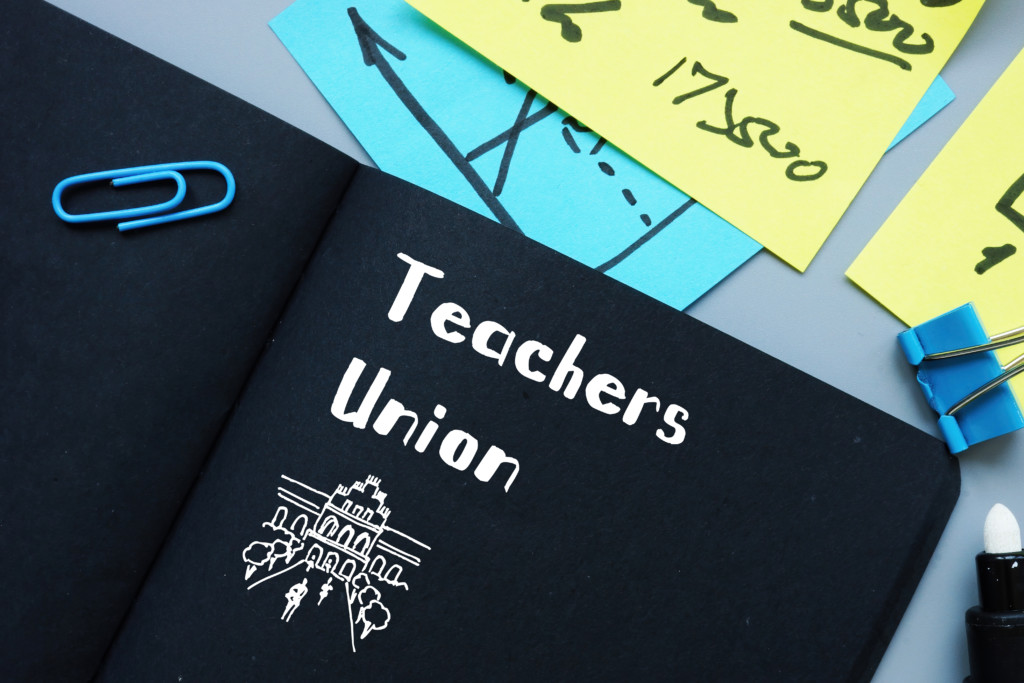 Last month, the Florida Education Association stepped up to the plate to take a swing at school choice.
Last month, the Florida Education Association stepped up to the plate to take a swing at school choice.
The state’s teacher union made three claims. First, that 90% of Florida’s K-12 students attend public schools; second, that this figure hasn’t changed in more than 20 years; and third, that the stagnant enrollment figure is proof vouchers (and school choice) are unpopular among parents.
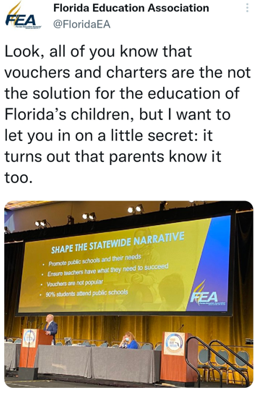 According to the U.S. Department of Education, Florida had 2,442,440 K-12 students enrolled in public schools in 2001. Counted in this total were 25,989 charter school students and 3,147 students attending university-run lab schools.
According to the U.S. Department of Education, Florida had 2,442,440 K-12 students enrolled in public schools in 2001. Counted in this total were 25,989 charter school students and 3,147 students attending university-run lab schools.
Florida private schools enrolled 303,093 students in 2001. There were around 41,128 home education students that same year.
That comes to 373,357 non-district students out of 2.78 million total K-12 students in the state, which means 86.6% of students attended district-run public schools in 2001.
If you go back further in time, say to 1995, your only options as a parent would have been a traditional district-run school, a district-run magnet school, private pay at a private school, or homeschooling. That year, about 89% of students would have been attending a district-run public school.
Claiming your option is the most popular with parents when parents have very little to choose from isn’t exactly the big endorsement the FEA makes it out to be.
That’s strike one.
So, has this “nearly 90%” enrollment statistic held true for more than two decades as more and more educational options become available?
According to the FLDOE’s “Education Choice Options by District” survey for 2019-20 (the latest data currently available) there were 2.9 million K-12 students in Florida, including 329,168 in charter schools, 28,011 students on the McKay Scholarship, 12,097 in Florida Virtual School, and 3,478 in university-run lab schools.
But this figure is missing private pay private school students, Florida Tax Credit Scholarship students, Hope Scholarship students, Family Empowerment Scholarship students, and homeschooled students.
When adding those missing 430,925 private and home education students for the 2019-20 school year, you get a grand total of 803,679 non-district students out of 3,334,672 K-12 students.
That means public school district students made up 75.9% of students in 2020 – not “nearly 90%.”
The number of non-district students more than doubled over the last two decades, and the public-school district’s share of the total K-12 student enrollment fell by more than 10 points.
That’s strike two.
Florida’s K-12 district schools are pretty good (Florida ranks No. 3 in the nation on K-12 achievement), and they undoubtedly are popular options among many parents. If the FEA truly believed its preferred schools were the best and most popular choice, it wouldn’t constantly be trying to stop charter schools from opening and school choice scholarships from expanding.
And that’s strike three. You’re out!
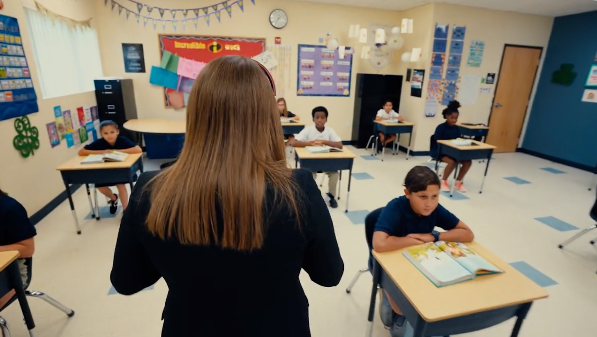
Most Florida schools, awaiting a decision in the case, already have returned to face-to-face instruction.
Renzo Downey, Florida Politics
A Leon County court has sided with Florida’s teachers union over the state’s order for schools to reopen amid the COVID-19 pandemic, issuing a temporary hold on that order.
Leon County Circuit Judge Charles Dodson found that Education Commissioner Richard Corcoran‘s order requires schools to reopen to receive funding. That “essentially ignored the requirement of school safety.”
Earlier this month, the Florida Education Association requested a temporary injunction “to stop the reopening of schools until it is safe to do so.” The union, NAACP and others filed the lawsuit against Gov. Ron DeSantis, Corcoran and Miami-Dade Mayor Carlos Giménez.
The order would deny funding to districts that remain closed over concerns for public health, which is constitutionally protected, Dodson said.
“There is not room in many classrooms for social distancing,” Dodson wrote. “There is not room to put desks 4 feet apart, much less 6 feet apart as is recommended. Students entering and leaving classrooms are inherently close together.”
Additionally, not all students might wear masks, teachers don’t have adequate personal protective equipment and teachers are asked to sanitize their own classrooms between classes.
Districts could delay the school year if it means making classrooms safer, DeSantis has said. But “the districts have no meaningful alternative” to reopening if they want to keep their funding, Dodson wrote.
DeSantis and Corcoran have also said any teacher could opt out of in-person teaching. Teachers working from home could teach remote learning classes, DeSantis offered.
“But that option is not being provided to all teachers,” Dodson wrote. “Some teachers are being forced to quit their profession in order to avoid an unsafe teaching environment.”
Department of Education officials denied both Hillsborough and Monroe county school districts’ plans to delay reopening while it permitted Miami-Dade, Broward and Palm Beach counties’ districts’ delayed plans. The difference was that the three hotspot counties are still under Phase 1, but the order didn’t distinguish between Phase 1 and Phase 2 counties.
However, Dodson did not throw out the complete order. Removing the requirement for “brick and mortar” classes, among other changes, would make the order constitutional in his eyes.
Several uncertainties remain about COVID-19, including to what extent children can infect adults, Dodson said. But DeSantis has pointed to studies that show low rates of transmission between children and adults as evidence that it is safe for classrooms to open.
“What has been clearly established is there is no easy decision and opening schools will most likely increase COVID-19 cases in Florida,” Dodson wrote.
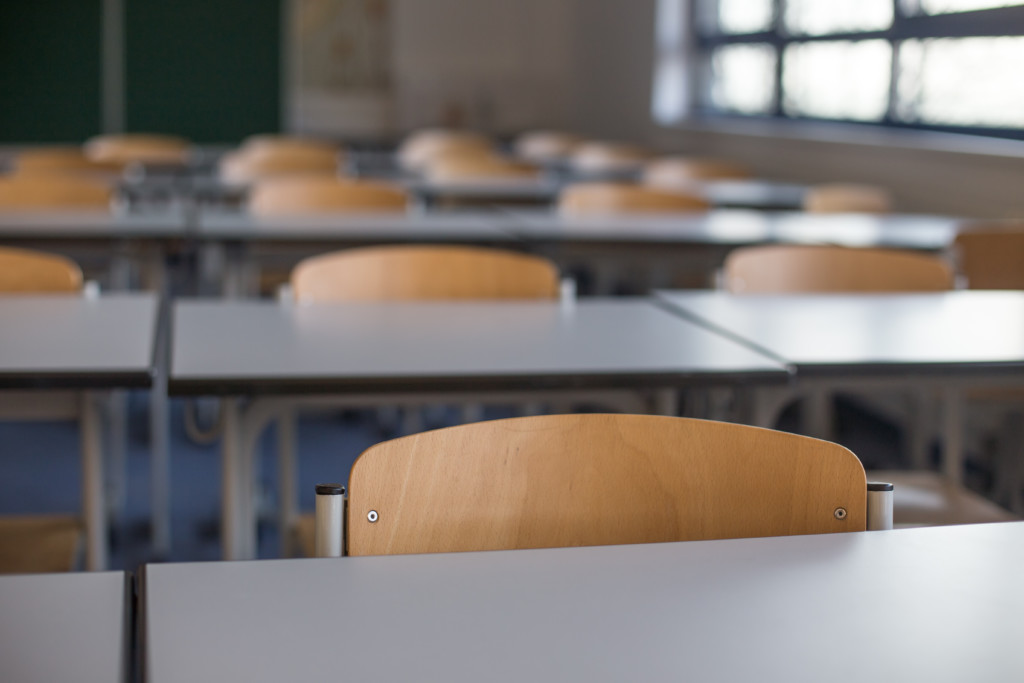 A story in Sunday’s Lakeland Ledger about a union-sponsored public education summit in Polk County included a chart of “Quick Facts” that bears scrutiny. One of them, about the financial impact of Florida Tax Credit Scholarships, is false.
A story in Sunday’s Lakeland Ledger about a union-sponsored public education summit in Polk County included a chart of “Quick Facts” that bears scrutiny. One of them, about the financial impact of Florida Tax Credit Scholarships, is false.
The statement: “In 2018, tax-credit scholarship programs totaled $1.058 billion, money that went to private and religious schools that could have gone to public schools.”
First, the total dollars are off. According to the state Department of Revenue, which tracks tax credits awarded under the scholarship law, companies received permission in 2018-19 for tax-credited contributions of $689.3 million. Those dollars translated into scholarships for 104,091 lower-income and working-class children to attend 1,825 private schools in that same year, according to the Department of Education.
The $1 billion figure may well include money spent on two voucher programs – McKay and Gardiner Scholarships – for students with special needs that are funded directly from the state treasury, but it is nonetheless misleading.
The more substantive claim, though, is that the money “could have gone to public schools.” This is at the core of a longstanding and erroneous argument – that vouchers harm public schools financially – offered by the Florida Education Association. In fact, FEA lost a 2014 legal challenge to the Tax Credit Scholarship in large part because it could prove no such harm.
In that case, McCall v. Scott, the FEA argued that public schools “have been and will continue to be injured by the scholarship program’s diversion of resources from the public schools.” The Leon Circuit judge who heard the case, George Reynolds, offered union attorneys the chance to amend their complaint to provide facts that bolstered that claim.
They declined, and Reynolds dismissed the case, writing: “Whether any diminution of public school resources resulting from the Tax Credit Program will actually take place is speculative, as is any claim that any such diminution would result in reduced per-pupil spending or in any adverse impact on the quality of education.”
On appeal, the union lawyers went a step further and asserted the scholarship program cost public schools $300 million in 2013-14. But the state education budget that year increased by $1 billion and per-student funding went up by 6.3 percent, leading First District of Appeal Judge Lori Rowe, during oral arguments, to ask: “But exactly what is the special injury you are articulating here? You haven’t alleged that any individual student is suffering. You haven’t alleged that per-student funding has been reduced. You haven’t even alleged that the education budget has been reduced.”
Outside the courtroom, eight different independent financial studies have all concluded the scholarship saves tax money that can be used to enhance public schools. That’s because the state spends less to educate these students on the scholarship than it otherwise would spend in a traditional public school.
In March, Florida TaxWatch added to that body of research with a report on what it called the “true cost” of education in 2017-18. TaxWatch went beyond the basic operating formula used to fund public schools and added all the other appropriations as well. It found the state spent $10,856 to educate the average student in public school, and contrasted that amount with $6,447 spent on the average Tax Credit Scholarship student. In other words, the scholarship cost 60 cents on the public school dollar.
One final note: Amid the lawsuit challenging the Tax Credit Scholarship in 2014, Nan Rich, a former state senator, made a similar claim about scholarship programs pulling money out of public schools, and PolitiFact Florida rated it “mostly false.”
We rate this “quick fact” to be false.
Breaking news from POLITICO tonight:
TALLAHASSEE — Florida’s statewide teachers’ union is losing an ally in its quest to eradicate a voucher-like scholarship program thati lets poor kids attend private schools.
The Florida PTA is dropping out of the Florida Education Association’s lawsuit over the 15-year-old program, in which corporations save on their tax bills by funding the scholarships.
The PTA joined the FEA, as well as the state’s chapter of the NAACP and others, in challenging the constitutionality of the policy. But, under a new president and board of directors, the advocacy group representing parents and teachers has decided not to participate going forward.
Full story here.
A national organization that fights for the academic needs of black students entered the lawsuit over Florida’s tax credit scholarship today. The group, Black Alliance for Educational Options, filed an amicus brief urging the First District Court of Appeal to reject the state teacher union’s attempt to shut down the scholarship and to affirm a circuit judge’s dismissal of the case.
The brief tracks some of the legal arguments offered by lawyers representing the state and scholarship parents, but its tone is more personal. “BAEO knows from recent history that without high quality educational options such as the FTC scholarships, many of these students would never be in a position to enjoy their full panoply of civil rights – those rights can ring hollow for illiterate black students,” wrote Michael Ufferman, the attorney for BAEO.
The tax credit scholarship, passed into law in 2001, is serving 78,014 low-income schoolchildren this year. Of those, 23,268 are black. Their average household income is $23,551, which is 0.6 percent above poverty. Roughly 54 percent live with only one parent.
The Florida Education Association and other groups filed suit in August 2014, asking the courts to declare the scholarship unconstitutional. Leon Circuit Judge George Reynolds dismissed the case on standing in May, ruling the plaintiffs could not show how they or public schools were harmed. The U.S. Supreme Court in 2011 similarly rejected a challenge to a tax credit scholarship law in Arizona, denying standing, and three other state supreme courts have ruled in favor of the scholarships. None to date has ruled against them.
“If this lawsuit succeeds, the results will be devastating to the nearly 80,000 low-income and working-class, mostly black and Hispanic students who will be kicked out of their schools,” BAEO Policy and Research Director Tiffany Forrester said in a news release. “But it will also be a blow to social justice. Wealthy families have always had choices in education; low-income and working-class families deserve the same.”
BAEO also said in the release it was "very disappointed" the Florida NAACP joined in filing the suit. Two other plaintiffs, the Florida School Boards Association and the Florida Association of School Administrators, have withdrawn since the case was dismissed in circuit court. Meanwhile, a growing number of leading black ministers across the state have joined the cause against the lawsuit, calling themselves the "Florida African-American Ministers Alliance For Parental Choice."
Earlier this month, attorneys for the state and scholarship families filed response briefs in the First District Court of Appeal. They asked to court to schedule oral arguments for the appeal.
Some of Florida's most influential black ministers took to the radio airwaves Tuesday to condemn a lawsuit challenging the constitutionality of the nation's largest private school choice program.
Bishop Victor Curry, a powerful Miami pastor, devoted two hours of his Tuesday morning call-in radio show to rallying support for Florida's tax credit scholarship program. The program is administered by Step Up For Students, which co-hosts this blog. He was joined by parents, students and education advocates, as well as fellow clergy, including Bishop C.E. Glover, pastor of Mount Bethel Baptist Church in Fort Lauderdale.
Glover helped found Mount Bethel Christian Academy, which serves students who rely on scholarships to cover tuition. He said he worried the loss of scholarships could uproot students who often struggled in the schools they left behind. He questioned why local elected officials would support the lawsuit, which was filed in August by the Florida teachers union, Florida School Boards Association and other groups.
"Some of the very people who might vote against this thing are some of the very people that represent our community," he said. "It hurts me to understand - to even think about - someone who knows what is happening in this system to not vote for this program."
Julio Fuentes, president of the Hispanic Council for Reform and Educational Options, told the radio audience that displacing so many students - the majority of whom are black or Hispanic - could also pose problems for school districts.
"Here's my question to the Miami-Dade School Board: If this lawsuit succeeds in shutting down the scholarship program, where will you educate the 18,414 low-income students in this county who would be kicked out of their schools?" he asked. "How many new schools would you have to build, and where would you find that money to do so?"
Joanne McCall, a vice president of the Florida Education Association and lead plaintiff in the lawsuit, told the Palm Beach Post that the groups behind the suit would not back down in the face of public pressure.
“We’re not going to waver,” McCall said, according to the newspaper's Post on Politics blog. “We believe we’re right and the constitution supports us.” (more…)
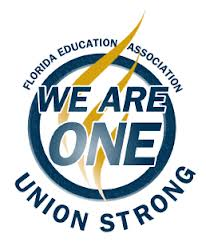
Why would the Florida Education Association fight school choice options aimed at helping the students who struggle the most in public schools?
Editor's note: This post recently appeared as an op-ed in the Gainesville Sun. It was published before the House proposal was changed to include no increase in the program cap. Florida's tax credit scholarship program is administered by Step Up For Students, which co-hosts this blog.
In a state that gives parents an expanding array of options on where to send their children to school, the Legislature is looking this year to improve a choice it gives to the least among us. That some education groups are fighting it is disappointing.
The bill provides for a modest expansion of the Tax Credit Scholarship, which this year serves 59,765 low-income students in 1,425 private schools. The average household income for these students is only 9 percent above poverty. Two-thirds are black or Hispanic, more than half live with a single parent.
Research shows us they were struggling academically in the public school they left behind, and standardized tests show us they are now achieving the same gains in reading and math as students of all incomes nationally.
Why would worthy organizations, such as the Florida Education Association and the Florida PTA, fight so hard to deny this opportunity?
Many of the opponents are turning to distortion and deception, as well. One of them wrote in The Sun recently that the bill represented “the largest expansion of private religious school vouchers in state history” and would “divert $2.3 billion... between now and 2016.”
For the record, the bill would add $30 million to the cap for each of the next five years, which amounts to an 8.3 percent increase next year and 3.5 percent increase in the fifth year. Those increases add up to $90 million by 2016, not $2.3 billion. (more…)
Editor's note: This post was originally published as an op-ed in today's Orlando Sentinel. The state's tax credit scholarship program is administered by Step Up For Students, which co-hosts this blog.
 The politics of school choice are particularly unforgiving these days, but one of the messages being sold in this year's Florida legislative session is amusingly hypocritical.
The politics of school choice are particularly unforgiving these days, but one of the messages being sold in this year's Florida legislative session is amusingly hypocritical.
The backdrop is a bill to strengthen a scholarship that for the past 12 years has provided some economically disadvantaged Florida children access to private schools. Though the effort has been cast by opponents as a dramatic expansion, the bill headed for a House floor vote on Friday has been changed so it no longer contains either an increase in the statewide cap or a sales-tax credit — two of the most contentious parts. It's worth remembering that this scholarship is the only choice program with a statewide cap.
In politics, though, the size of the debate doesn't always conform to the size of the legislation. The Florida Education Association has launched an aggressive campaign to block it, including a requisite attempt to discredit the supporters. But what is especially entertaining is the FEA's feigned shock that scholarship advocates might invest in political campaigns involving Democrats.
The FEA is distributing a video from a 2011 school-choice conference in Berkeley, Calif., that features Doug Tuthill, who is president of the nonprofit that administers the tax-credit program and a former chapter president for FEA. The conference was put together by a group that includes many liberal academicians who appreciate the historical role teachers unions have played in providing financial support for Democrats. But they asked him how to break that grip because they are dismayed the money now comes with a prohibition on voting for private school choice.
Tuthill's answer was honest and direct: Invest in legislative races, just like the union does.
This is an unsurprising statement to anyone with even a passing acquaintance with modern politics, but FEA Vice President Joanne McCall was aghast: "This video reveals that it's all about the money."
Now I do not defend the way big money is impacting modern politics or the coarse campaigns that are often a byproduct, but to be lectured on the evils of campaign spending by the FEA is surreal. It is the FEA's primary political weapon. Since 2002, the FEA and its national affiliates have invested $20.1 million in Florida campaigns, according to the Florida Division of Elections. Its money is so integral to Florida Democratic legislators that no one raises an eyebrow when all the party's House and Senate members meet, as they did on April 2, at FEA headquarters. The low-income parents for whom the school-choice movement fights don't have money for campaigns. I am honored to fight for them and to help their voices be heard. (more…)
Editor's note: This post initially appeared as an op-ed over the weekend in the Pensacola News Journal. The tax credit scholarship program is administered by Step Up For Students, which co-hosts this blog.
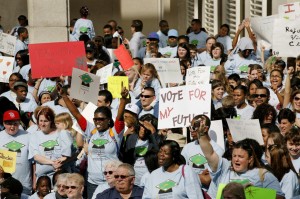
Low-income parents are clamoring for more school choice options for their kids, and the results to date are encouraging. Why would anyone interested in the public good want to block them?
Thanks to Florida’s tax credit scholarship program, nearly 60,000 low-income students in grades K-12 attend 1,425 participating private schools, including 19 in Escambia County. That’s 1,425 options those students would not have had otherwise. That’s 1,425 options that are embracing the students who struggle the most.
So how jarring, then, to read a Florida teachers union leader saying “vouchers do not give parents real educational choice.”
The piece by Joanne McCall, vice president of the Florida Education Association, (Viewpoint, “Vouchers don’t offer a real choice in a child’s education,” March 23) took plenty of liberties with facts about the program and a bill that would strengthen and expand it. But more concerning were the notions that anchored it:
• That expanding choice for low-income students comes at the expense of district schools.
• That low-income parents don’t know whether their schools are high quality.
Let’s start with the indisputable: taxpayers pay about half as much per tax credit scholarship ($4,880 this year) as they do per pupil for public schools. Five independent groups looked into concerns of scholarship money being “siphoned” from public schools and all reached the same conclusion: not true. Rather than hurting public schools, the program saves money that can be invested in them.
McCall would also have readers believe the program exists in a regulatory Wild West. This is also not true. Scholarship students are required, by law, to take state-approved tests. The results are analyzed by a researcher whose work is highly regarded by all sides in the choice debate. The average gains or losses for schools with more than 30 tested students are posted publicly.
The evidence shows scholarship students were the lowest-performing students in the public schools they left behind – a finding at odds with McCall’s suggestion that private schools are cherry picking. (more…)